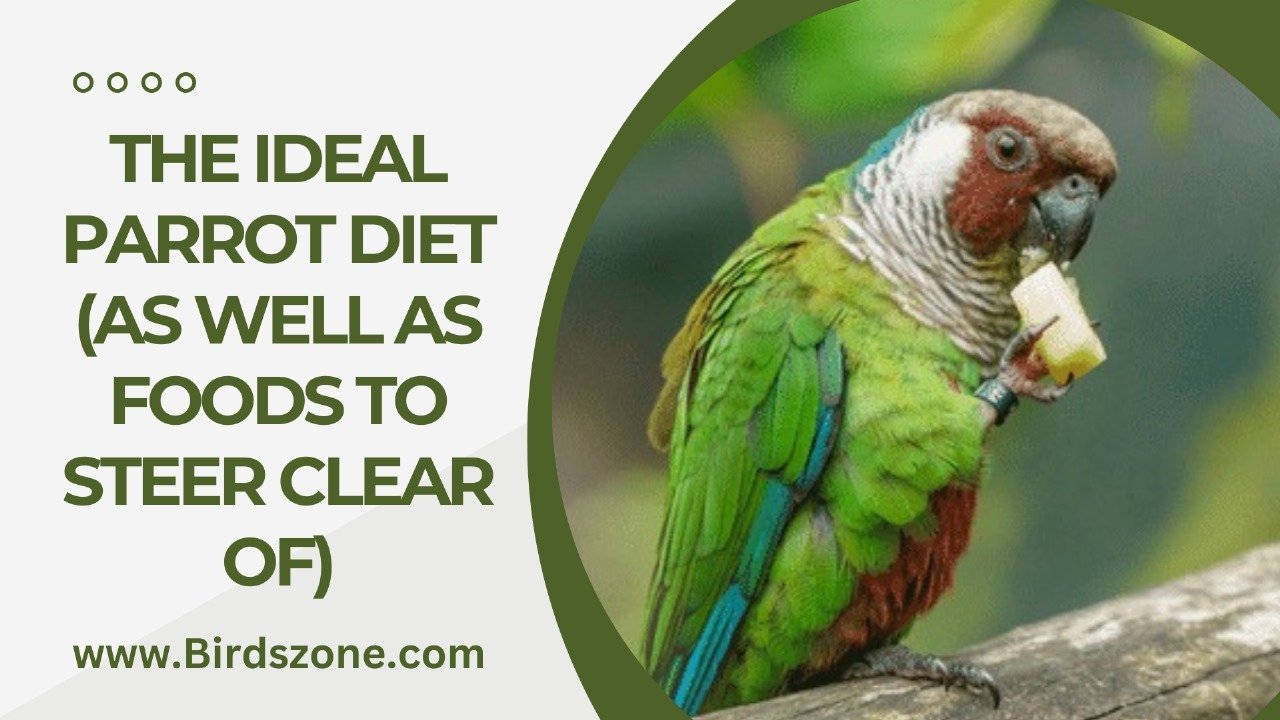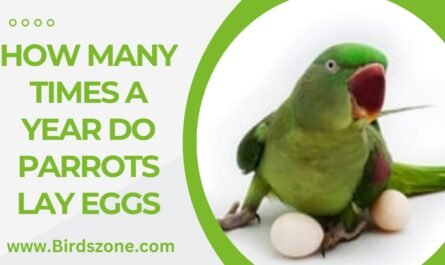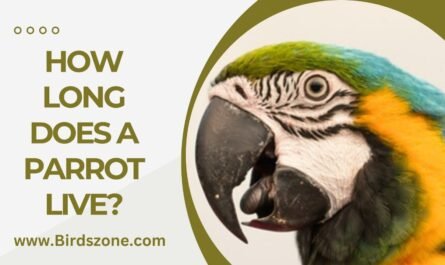THE IDEAL PARROT DIET (AS WELL AS FOODS TO STEER CLEAR OF). The perfect diets for parrots consist of fresh food as well as top-quality pellets. Parrots aren’t supposed to feed seed mix contrary to what the majority of people believe. small bird species that have higher energy metabolisms and high energy consumption including cockatiels, budgies and parakeets can consume the perfect of both premium seeds as well as pellets. For larger birds, like the cockatoos Amazons greys, cockatoos and macaws, should avoid eating seeds because they don’t include satisfying nutrients. In addition, bad seed mixes can lead to liver problems as well as other health problems for companion birds including an excessive weight recieve.
Diets of pellets to feed parrots
Avian veterinarians with board certification with a specialization in the field of avian nutrition advise 50% to 70% of the parrot’s diet should be made up of pellets. The desirable pellets for to your pet are those that are free of any additives like coloring or sugar, since they could act as a compound in the body, leading to problems over time, and even reduce the life span of the bird. Lafeber, Harrison’s, Roudybush, Zupreem Naturals, Hagen, TOPS (Totally Organic Pellets) and Caitec Oven fresh Bites are a couple names of pellets that are recommended by experts.
It’s possible to train birds to consume a healthy pellet diet by a gradual process of conversion, even though the majority of them have not learned. Speak about this procedure with an expert veterinarian in avian medicine for advice on how to assure that your pet receives the correct nutritional requirements.
Your pet’s parrot and pellets
Pellets have been used since the 1930s, but this generation is more advanced than previous generations.
These days, a major producers produce pellets to feed various species. authorities on birds have developed various pellet diets. If you have a busy schedule this seems to be a viable feature.
Let’s be clear that you only are paying for what you get. The cheaper products are made with inferior colors, chemicals and a large amount of substances that are filled with.
Despite all my efforts however, I’ve never had success in getting my preferred birds to eat brand new ones. There may be some trials and errors to find an appropriate pellet that your bird enjoys eating. Each bird, just like human being, has their own flavor profile.
The young birds who are being weaned on pellets seem to take pellets more readily.
Change from pellets to seeds to feed your parrot
The birds can be taught to transition from pellets to seeds in some weeks should you and your vet decide you prefer pellets as the best choice.
Most popular natural foods appear to be Lafaber and Lafaber, both of which are among the highest priced.
Wild and foraged items that your bird can eat
In the wake of more people being more aware of what the wild bird consume, the species are growing in prominence. Certain types of weeds and foods in the garden are more closely linked to the nature-based diet.
If you’re planning to introduce fresh foods into your bird’s diet, such as those that are listed below, be cautious and introduce the new foods each at a time.
An abrupt change can cause disruption to your bird’s digestive tract. Talk to your veterinarian if need any benefit or assistance.
Food that is fresh and nutritious, which can be both safe and useful for bird species.

Fresh food should comprise the remainder of 30 to 50 percent of the parrot’s diet. The most common examples are:
Vegetables either raw or cooked (ideally natural)
Whole grains cooked or pseudo-grains such as barley, oats and teff amaranth and wild brown or prohibited rice
Lentils are soaked in water, cooked or sprouted
Seeds and nuts Raw, soaking or sprouted
Almost half of raw fruit
The diet of a healthy parrot should be comprised of less than 10-20% of fruits as well as seeds and nuts. Scientists are finding that in the vast majority of species of parrots, the conventional impression of parrots living out in the wild eating mainly fruit and nuts is actually wrong.
Additionally, in comparison to caged bird species, wild birds use much more energy, so they require the more fats and sugars in the nuts and fruit. Furthermore, the fruits they consume in nature are much lower in sugar, and have higher levels of fiber than those that are grown for consumption by humans.
Serve fruit, seeds and nuts and with a focus on uncooked, raw nuts as well as fresh fruits. Don’t eat any peanuts because they are dangerous. It is also possible to use various other nuts, like walnuts, pecans and almonds. When feeding food to a pet, be sure that it’s free from rot, mold, or fungus.
Parrot Chop
“chop “chop” is a simple cost-effective, efficient, and practical method to offer your bird with a wide variety of nutritious fresh meals regularly. Chop is exactly what it’s: A huge amount of legumes and grains is cooked. A range of vegetables are finely chopped together into a big container. Then, you pour 3-4 food items each day into containers for sandwiches or similar and store them in your freezer.
The chop you make could last between a week and some months, based the quantity you make and the amount of birds you own. It is possible to customize chop according for each bird’s taste and preferences, however you could play around with different ingredients that can entice birds to try it. To learn more about the process of making chop, check out the Parrot Nation Recipe Posts page.
Poisonous Things Birds Should Never Consume
It is not recommended to feed your birdies any poisonous food items, including:
Booze
Avocado
Tapioca or cassava
Coffee
Dairy products
Garlic, onion and the scallions
Meat
Fungi
Cocoa or chocolate
Almonds
Seeds and pits from fruits
Beans in raw form
A well-balanced diet for avian species must also be free of food items high in salt, fat, or sugar, aswell in foods that are laced with colors or preservatives.
Giving nuts to your pet
Because parrots are known to love nuts and nuts, they’re a wonderful educational treat.
With the risk of developing Aspergillosis being a possibility, you may opt not to give monkey nuts. (A Lung disease caused by mold with a an unfavorable outlook). I buy human-grade peanuts, and ensure that they are stored compatible to you are with the perfect before dates are followed and that the proper preservation procedures are in place.
A few parakeets and rescue birds that endure through the East Anglian winter are kept in my Aviary. When the weather is cold I cut down sunflowers and monkey nuts. I’ve not lost a bird even in temperatures below freezing.
Like beans, nuts are also rich in protein, but they also have enough fat. Give your pet various nuts that are unsalted to consume, however restrict the quantity to handful of nuts per day based on the activity.
The recommended amount is 2 or 3 nuts per every day for the majority of species. But what about Macaws with a greater amount of fat?
Are parrots allowed to eat nuts?
Macadamias, almonds, cashews Pecans, walnuts hazelnuts and brazil nuts shelled peanuts, pistachios, are just a few of the food items birds can consume.
If you choose to use unflavored peanut butter, you could offer the product to your pet.
There is a variety of peanut butters is available comprised entirely from peanuts. We would suggest choosing them over ones which contain stabilisers and other added ingredients such as palm oil. For breakfast I love peanut butter on toast. Artha Grey is a fan of peanut butter and toast.
What’s not allowed to Parrots?
Parrots are not allowed to consume the veggies and fruits that you’ve mentioned, however there are some other foods they can’t eat. It is important to keep the tea, coffee, alcohol and food items for humans that contain salt, fried and fatty or sweet out of reach.
Your parrot’s and your own supplements
Calcium, vitamin, probiotic and various minerals are taken into the equation. You shouldn’t need supplements if you are feeding the right quantity of pellets.
The opinions on diets that are not peeled are divided. The addition of calcium is made by numerous breeders especially for lay-laying eggs for hens. My veterinarian says that eating a healthy diet that is rich in veggies eliminates the requirement for supplementation.
We suggest speaking to your vet, as they will be able to help in providing advice according to the diet the parrot eats.
What’s the drink from parrots?
The wild consume water birds, and they get it from many sources.
It is essential to change the water every day when we are in captivity. Sometimes, it is even two times. Many caregivers advocate mixing a few drops cider vinegar, some prefer to make use of spring water. This is my personal preference.



